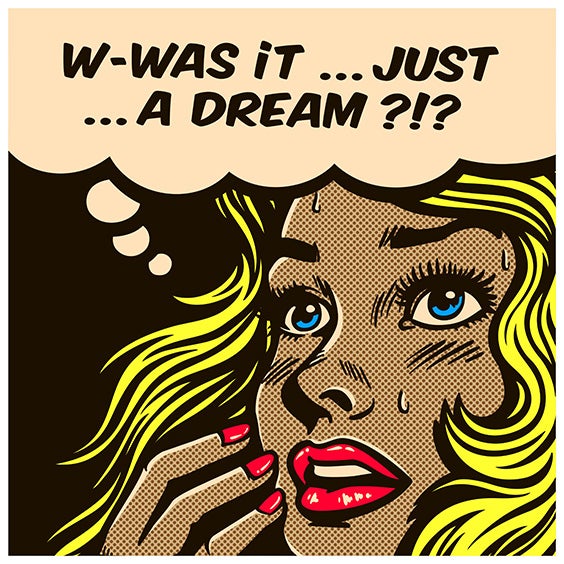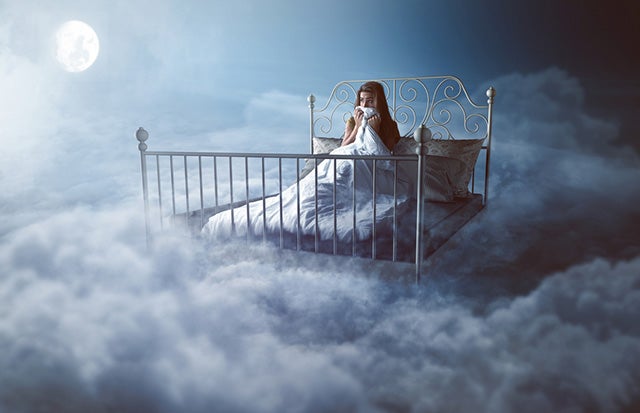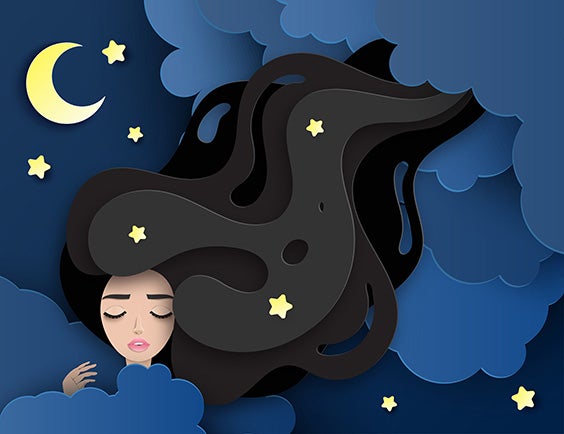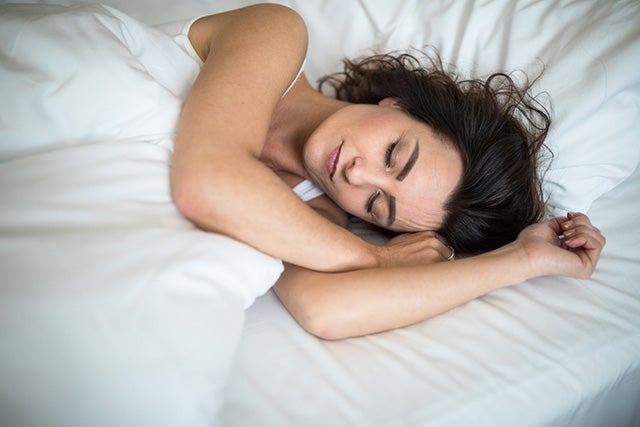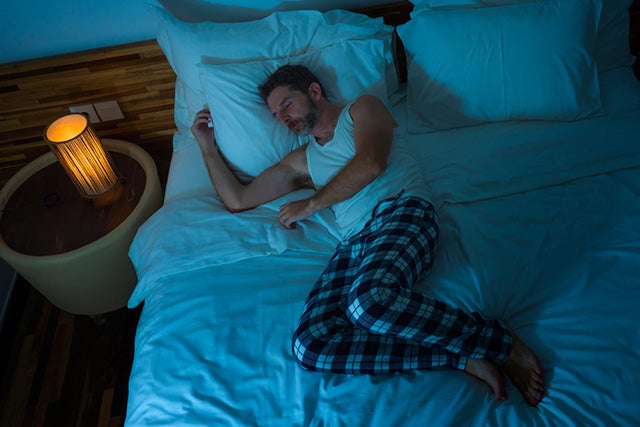Do you have dreams about being awake, perhaps even going through some of your daily routines, only to wake up for real and find out it was all a dream? Well, you aren’t alone. Although not overly common, this isn’t a rare experience, and it is called false awakening.
Even though this can occur for no reason what-so-ever, it can be an indication of sleep conditions or disrupted REM sleep stages. If you have been wondering what false awakening is, we are going to explain here why this phenomenon occurs and what you can do to cope with it’s effects.
Types of False Awakening
There are actually two types of false awakening, both of which involve vivid dreams that allow realistic feelings, images, and events that are life-like and intense enough to feel real. You will remember these dreams upon waking as if they actually happened.
The first type of false awakening is a dream-like state that mimics mundane, everyday scenarios and patterns – such as awakening and going through a morning routine. The second type of false awakening is more intense and may involve anxiety, fear, and tense situations that may be almost nightmarish in nature. Both can awaken you due to the feeling that something isn’t right, or through a surprised or scared state of mind.
Symptoms
There are a few patterns that may occur during false awakening that can help you determine if you were, in fact, within this state. These include:
Lucidity – The awareness that you are dreaming.
Pre-Lucidity – Wondering if you are dreaming, and then realizing you were upon awakening.
Looping – Believing you are waking up while still within the dream.
Non-realism – When things don’t make sense in the dream, which brings about a sense of lucidity.
Dissociation – Feeling as if you are outside watching the dream occur to you.
Sleep Paralysis – The inability to move or speak upon waking.
Why False Awakening Occurs
Vivid dreams usually occur during REM (rapid eye movement) sleep stages. When this stage is interrupted, it is called sleep fragmentation and it may be the cause of false awakening. REM is a more shallow sleep stage where brain activity is at its highest, and when disturbed may create a partially conscious dream state – hence why sleep fragmentation feels so real.
Sleep fragmentation may be cause by some of the following sleep problems as well:
- Sleep Apnea – A sleep disorder marked by interruptions in breathing through the night.
- Insomnia – Periodic or chronic problems with falling asleep or waking through the night.
- Periodic Limb Movements of Sleep – PLMS is the repetition of sleep movements such as jerking, cramping, or leg twitching.
- Environmental Stressors – Interruptions caused by noise, bright lights, and city noises that are outside your control.
- Mental Stressors – Stress, both physical and mental, depression, and anxiety can all lend themselves to insomnia, but also can contribute to an anticipation of waking.
- Post Traumatic Stress Disorder – PTSD can lend itself to sleep disorders and be a reason why unexpected awakening occurs.
- Narcolepsy – This sleep disorder is marked by a sudden falling asleep at the wrong times.
Protoconsciousness Theory
This theory states that your brain is preparing itself for consciousness during REM sleep stages, and does so using internal representations of your day to day routines. This creates a model as a jumping off point for your dreams.
How to Cope with False Awakening
If false awakening happens more than what is comfortable for you, and it isn’t linked to any sort of mental or physical illnesses, you can ask a doctor for a referral to a sleep specialist. Even though it isn’t anything to worry about overall, it can become upsetting when you keep experiencing recurring dreams, especially if they are disturbing. In time, they can be linked to depression or anxiety, or even somniphobia: a fear of going to sleep.
There are some factors you can consider that may help you with a less active sleep. Consider keeping a pattern each night that gets you to bed at about the same time, dim the lights prior to getting to bed, and turn off all electronics an hour or two before you go to sleep.
If you do already struggle with any mental health concerns, even if only minor, you may want to speak with a doctor about things that help you relax to improve your rest.
In Conclusion
False awakening is just an odd phenomenon that can trick your mind into thinking it is awake, and leave behind vivid memories of your dreams. Most likely caused by the shallow sleep and active brain function of REM sleep stages, it usually only happens sporadically and rarely.
If you have ever experienced false awakening, it can be an unnerving experience, but for the most part isn’t anything to worry about. Unless it is bothering you and becomes a regular occurrence, you don’t need to address it with a medical professional who can refer you to a sleep specialist to rule out any sort of underlying problems that may be influencing how often it occurs.
Photo credit: Foxys Graphic/Shutterstock; durantelallera/Shutterstock;
Meranna/Shutterstock; lassedesignen/Shutterstock;
TheVisualsYouNeed/Shutterstock; Agenturfotografin/Shutterstock
